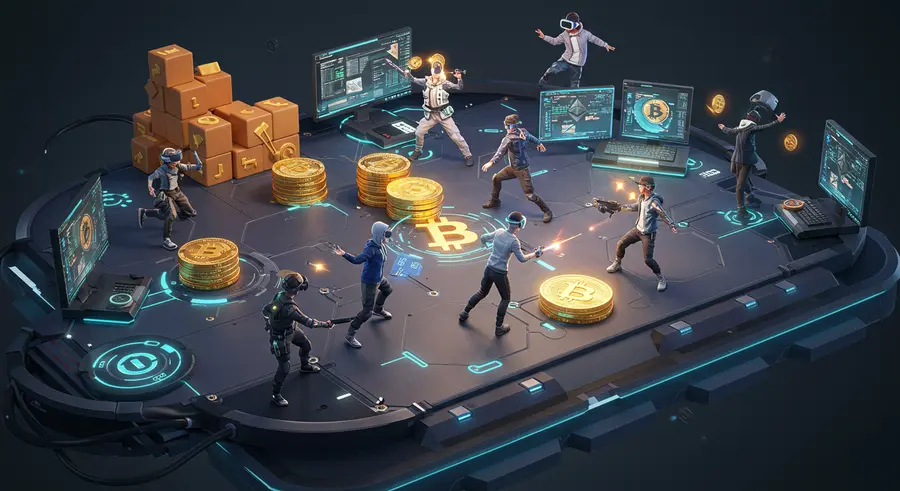Blockchain Gaming Explained: Play-to-Earn, NFTs & The Metaverse
Blockchain gaming, often referred to as GameFi (Gaming Finance), represents a revolutionary shift in the gaming industry. By integrating blockchain technology, cryptocurrencies, and Non-Fungible Tokens (NFTs), these games empower players with true ownership of in-game assets, enable new economic models like "play-to-earn" (P2E), and lay the foundation for immersive metaverses.

The Rise of Play-to-Earn (P2E)
One of the most significant innovations in blockchain gaming is the Play-to-Earn model. Unlike traditional games where players spend money and time without truly owning their digital items, P2E games allow players to earn tangible value through gameplay. This value can come from:
- NFTs: In-game items like characters, skins, weapons, and virtual land are tokenized as NFTs, meaning players have verifiable ownership. These NFTs can be traded, sold, or even rented on open marketplaces.
- Cryptocurrencies: Players can earn fungible tokens (cryptocurrencies) by completing quests, winning battles, staking assets, or participating in the game's ecosystem. These tokens can often be exchanged for other cryptocurrencies or fiat money.
- Governance Tokens: Some games issue governance tokens, giving holders a say in the future development and direction of the game, fostering a truly decentralized community.
NFTs: The Backbone of Digital Ownership in Games
NFTs are crucial to blockchain gaming. They provide irrefutable proof of ownership and authenticity for digital assets. This means:
- Scarcity and Rarity: NFTs can be designed with unique attributes and limited quantities, creating rarity and driving their market value.
- Interoperability (Future): The vision is for NFTs to be usable across different games or metaverse platforms, although this is still a developing concept.
- Creator Royalties: Game developers and artists can program royalties into NFTs, allowing them to earn a percentage of future sales on secondary markets.
GameFi and the Metaverse Connection
Blockchain gaming is a foundational pillar of the emerging metaverse. The metaverse envisions persistent, interconnected virtual worlds where users can interact, socialize, work, and play. Blockchain technology provides the necessary infrastructure for digital identity, verifiable ownership of virtual assets, and decentralized economies within these metaverses. Games like Decentraland and The Sandbox are prime examples of blockchain-powered metaverses where users can buy virtual land (as NFTs), build experiences, and participate in a vibrant digital economy. For those interested in the broader financial landscape that underpins these digital economies, understanding market dynamics and investment strategies is key.
Benefits and Challenges
Benefits:
- Player Empowerment: Players own their assets and can monetize their time and effort.
- New Economic Opportunities: Creates new income streams for players, especially in developing economies.
- Transparency: All transactions are recorded on the blockchain, ensuring fairness.
- Community Governance: DAOs often govern game development, giving players a voice.
Challenges:
- High Entry Barriers: Initial investment in NFTs or cryptocurrencies can be costly.
- Scalability Issues: Blockchain network congestion can lead to high transaction fees and slow gameplay.
- Sustainability of P2E Models: Economic models can be fragile and prone to inflation if not managed carefully.
- Regulatory Uncertainty: The evolving nature of crypto regulations can impact game development and player participation.
- User Experience: Often less polished than traditional games due to nascent technology and focus on underlying economics.
The Future of Gaming
Blockchain gaming is still in its early stages but holds immense potential to revolutionize the gaming industry by shifting power from centralized corporations to players and communities. As technology advances and user experience improves, expect to see more innovative game designs, deeper economic integrations, and a blurring of lines between virtual and real economies. For continuous updates on the crypto and gaming space, reputable sources like Decrypt and Cointelegraph Gaming News are excellent resources.